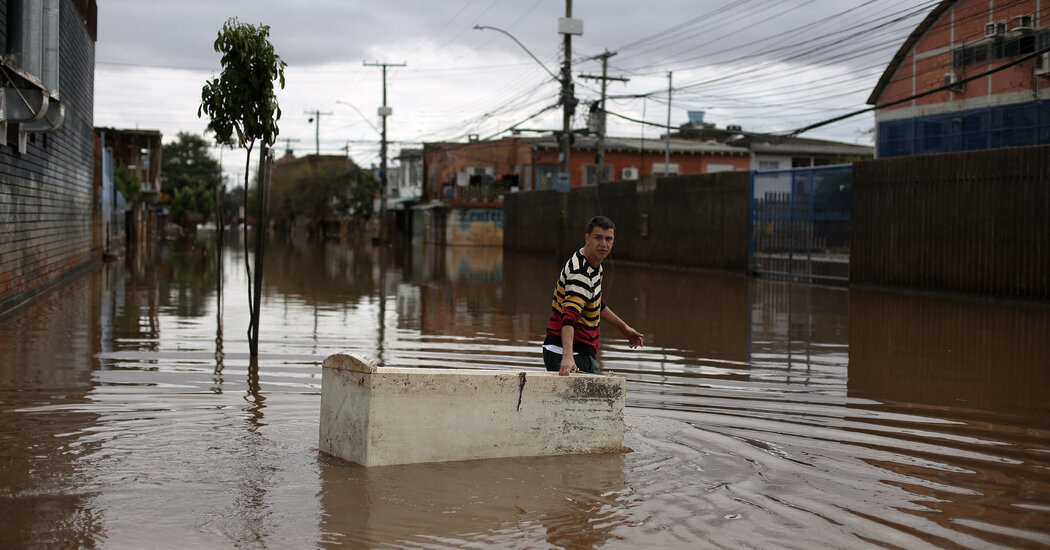The country’s south received three months’ rain in two weeks. Global warming has made such deluges twice as likely as before, scientists said.
Human-caused warming has doubled the chances that southern Brazil will experience extreme, multiday downpours like the ones that recently caused disastrous flooding there, a team of scientists said on Monday. The deluges have killed at least 172 people and displaced more than half a million residents from their homes.
Three months’ rain fell in a two-week span of April and May in the southern state of Rio Grande do Sul. After analyzing weather records, the scientists estimated that the region had a 1 percent chance each year of receiving so much rain in so little time. In the cooler climate of the 19th century, before large-scale emissions of greenhouse gases, such colossal downpours were far rarer, the researchers said.
Brazil’s south is one of the country’s rainiest regions. As the world gets warmer, the areas of high atmospheric pressure that occasionally form over the Atlantic coast of South America are becoming larger and longer lasting. That pushes more warm, moist air toward the south, where it can fall as rain.
When the latest rains hit, Rio Grande do Sul was still recovering from floods that killed at least 54 people late last year. Three of the four largest floods ever recorded in the state’s capital, Porto Alegre, have now occurred in the past nine months, said Regina Rodrigues, a professor of physical oceanography at the Federal University of Santa Catarina and one of the scientists who worked on the new analysis.
“While significant floods have occurred in the state of Rio Grande do Sul in the past, they are becoming increasingly strong and widespread,” Dr. Rodrigues said at a news conference.
